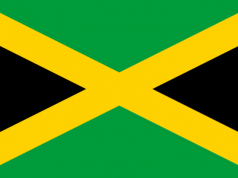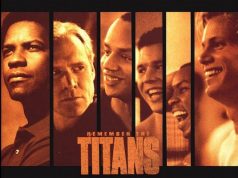Disney keeps cranking out these fact-based inspiring sports movies, throwing everything at the wall to see what sticks. Now and then, something does. “Invincible” does. It’s a lean, efficient, classy film, uplifting without being schmaltzy. It clearly was made by people who didn’t just want to churn out another football story; they wanted to make a good movie.
The ads tout it as being “from the producers of ‘The Rookie,’” but you’d probably have made the connection anyway. Both stories are about schoolteachers who take a once-in-a-lifetime chance to try out for a professional sports team. It was baseball in “The Rookie,” and in “Invincible,” it is that burliest, manliest of sports, football.
The film is set in Philadelphia (a burly, manly town) in 1976 (a burly, manly era — just check out those mustaches). The economy is lousy, and so are the Philadelphia Eagles. Both factors are depressing to the men of South Philly, among them a just-fired, just-divorced man named Vince Papale (Mark Wahlberg). His buddy Max (Michael Rispoli) owns the neighborhood bar and lets Vince work a few hours there to stay afloat, serving drinks to and commiserating with his pals.
The Eagles’ new coach, Dick Vermeil (Greg Kinnear), a fresh-faced maverick from UCLA, sets up open tryouts as a publicity stunt. He doubts seriously that he’ll find any worthwhile players by throwing open the gates to the local wannabes and former high school heroes, but at least it will get people excited about the Eagles again. Besides, who knows? Maybe there’s a star out there, just waiting to be found.
Vince Papale is that star, convinced by his buddies, with whom he plays vacant-lot football some evenings, that he’s a natural. If you are a football fan, perhaps you already know the name of Vince Papale, which means you already know what happens when he goes to those tryouts.
Of all the underdog-sports films in existence, this is one of the few to successfully re-create the spirit of “Rocky” (which I consider the gold standard), and not just because they’re both set in Philadelphia in the mid-’70s. First-time writer Brad Gann and first-time director Ericson Core capture the moodiness of Vince’s unemployment, the general low morale among his friends, the sheer loneliness, even with a team sport, of working out, training and preparing. There are even scenes of Vince jogging through Philadelphia, during which it is impossible not to think of the Italian Stallion.
Vince’s goal, like Rocky’s before him, isn’t to win but to go the distance. Having failed at so many things, he expects to fail at this, too. Even his father (Kevin Conway) expects it. Dad isn’t disappointed by his son’s lack of success in life; he merely accepts it as who he is and loves him anyway. Their relationship takes a sweet turn as things start to work out for Vince, and it’s one of the film’s more moving scenarios.
Core acts as his own cinematographer (a rarity in Hollywood), and while he shoots the game scenes in that same jittery style that has become standard for football movies, he demonstrates a knack for composition and interesting visuals in other ways. He uses the camera to help tell the story, not just as a mechanical device to record the images. Not all directors bother, especially not for studio-produced crowd-pleasers. But the extra effort is appreciated.
He also captures the camaraderie of Vince’s down-and-out Philly friends and the brotherly love that goes on among devoted football fans. It’s Vince’s story that matters most — and Wahlberg, always a reliable actor, gives him the proper weight and emotional range — but it’s also the story of a neighborhood that needs to feel good about itself again. You’ll find that as their spirits rise, so do yours, right up to the triumphantly tearful finale.
B+ (1 hr., 48 min.; )




